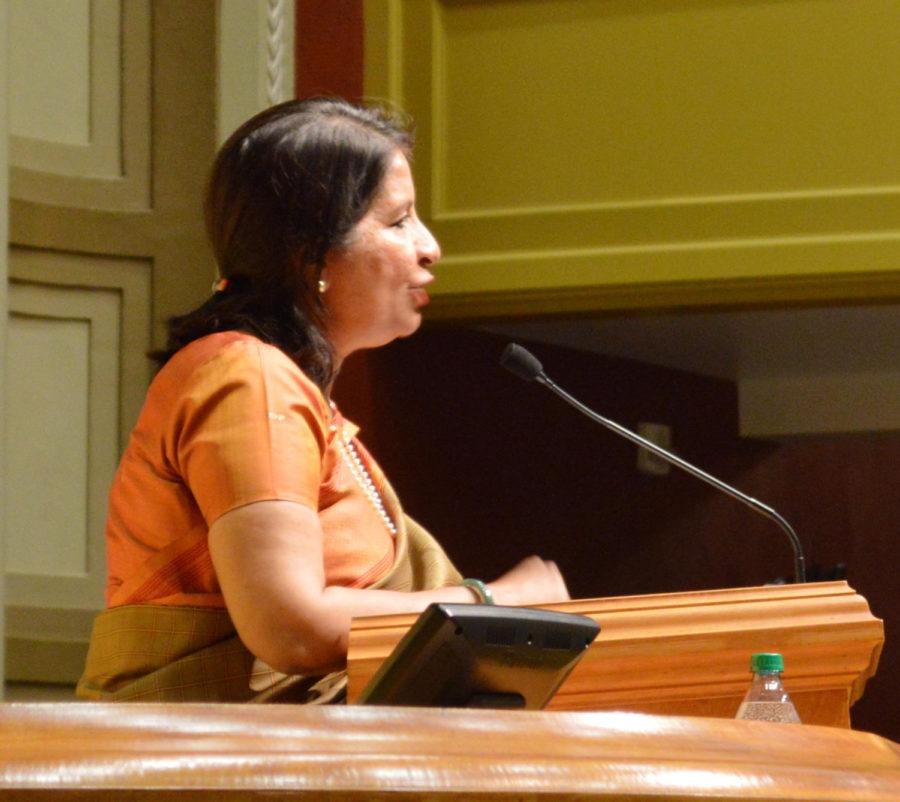Indian ambassador speaks at Manatt-Phelps Lecture
October 9, 2013
Cooperation between the United States and India on different issues will play a key role in a steady relationship between the two countries, the ambassador from India to the U.S. said Tuesday.
Nirupama Rao lectured on “How Far Have We Come, What Lies Ahead?” in the Dolezal Auditorium of Curtiss Hall.
President Steven Leath opened the lecture and said: “The lecture helps to increase the academic profile of ISU.”
Rao talked about a number of issues that connect the United States and India.
“Many recollections and experiences give to the canvas of the relationship between India and the U.S.,” Rao said.
Rao also talked about the relationship between Iowa and India, including Norman Borlaug’s contribution to the Green Revolution in India, George Washington Carver’s correspondence with Mahatma Gandhi and the connection between the nonviolent movement activists in the Unites States with Mohandas Karamchand Gandhi.
Rao said more than 30 topics in different facets make a difference to people in both of the countries and strategic partnership between the two countries is not just about secur-
ity but also about a partnership between the United States as the oldest constitutional republic and India as the world’s largest democracy.
Rao said the Unites States understands India’s role in the global pivot to Asia. The United States has indicated support for a permanent seat for India on the United Nations Security Council.
“The relations between both the countries have been positive and are on the same side against terrorism,” said Sudhanshu Vyas, doctorate student in computer engineering.
Rao said the relationship is founded on “people to people” connections. On the Indian-American community, she said the relationship is based on popular aspirations of both the people and have played an important role in deepening and strengthening it.
Rao said India has seen a deceleration in growth in the last year, but she said the fundamentals are still strong, and India looks forward to resume a healthy growth rate. India has set its focus on inclusive growth to lift millions out of poverty.
Rao said challenges for India include modernizing infrastructure and improving agriculture. Higher education is another area of cooperation that can help transform the young population of India into a demographic dividend. India plans to emulate the community college model of the United States with help from counsel of American colleges.
Rao said there has been depth and maturity in relations between the two countries in recent years compared to limited cooperation in a few areas 10 years ago. Both countries have made strides in increasing political understanding since then.
Rao mentioned energy, trade and security as key cooperations issues.
“I am from [the] Bahamas and I am interested in India’s experience as a post-colonial power,” said Peter Deveaux-Isaacs, freshman in political science. “I am also interested in attitudes between people in both the countries.”
The event was attended by about 400 people.

















